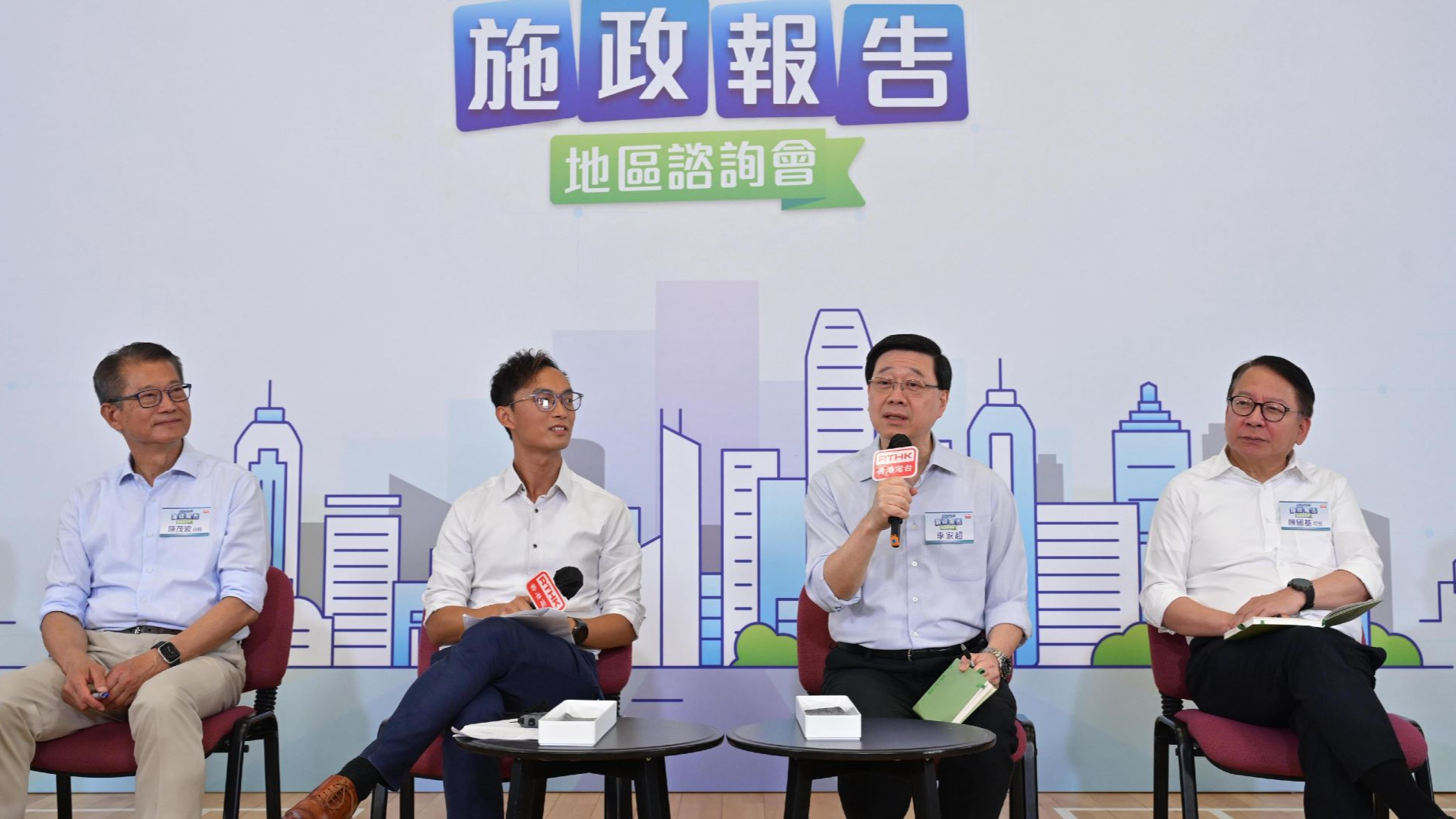
Stakeholders from the education sector on Thursday urged the authorities to enhance support for nonlocal students, increase accommodation, and release more land for local universities to bolster the Hong Kong Special Administrative Region’s goal of becoming an international education hub.
Their calls came ahead of the Policy Address, which will be delivered by Chief Executive John Lee Ka-chiu on Wednesday.
At a news conference on Thursday, Education Convergence, an organization of education professionals with a history spanning over three decades, made proposals to regulate Hong Kong’s educational connections with overseas and the Chinese mainland, especially collaboration with other cities in the Guangdong-Hong Kong-Macao Greater Bay Area (GBA).
READ MORE: Hong Kong becomes an international hub for university students
While acknowledging the SAR’s aim of becoming an international educational hub, the organization highlighted constraints in the development of primary and secondary education.
Considering the falling student numbers in Hong Kong, the organization suggested that the government introduce special visas that allow nonlocal students, such as those from the mainland and Southeast Asia, to attend primary and secondary schools in Hong Kong through self-funding.
The organization also suggested enhancing support for children of professionals who have moved to Hong Kong under the Top Talent Pass Scheme (TTPS), such as facilitating their schooling.
Education Convergence stressed the importance of tackling accommodation issues for nonlocal students. For instance, the Education Bureau and the Development Bureau could work together to repurpose unused school buildings as student dormitories or allow the erection of new dormitories in schools with sufficient space.
Also on Thursday, real estate service provider Colliers Hong Kong published a report forecasting that the lack of student accommodation will surpass 120,000 bed places by 2028, fueled by the growing inflow of nonlocal students and the shortage of land supply.
READ MORE: Policy Address: A blueprint for steering toward high-quality growth
The company noted that while initiatives such as the planned university town in the Northern Metropolis show promise, progress remains slow in land acquisition and transportation infrastructure development.
Speeding up construction of the university town is also mentioned by The Hong Kong Institute of Surveyors (HKIS). In their advice for the Policy Address, the HKIS suggested that the government follows Singapore in labeling specific blocks as land with undetermined use and develop them into temporary public recreational areas after preliminary leveling and grass-planting. This approach can fast-track the region’s development, while enabling the land to be easily repurposed later.
The 2025 Policy Address will take place earlier than in previous years to allow additional time for arrangements ahead of the Legislative Council (LegCo) election in December.
Contact the writer at amberwu@chinadailyhk.com


